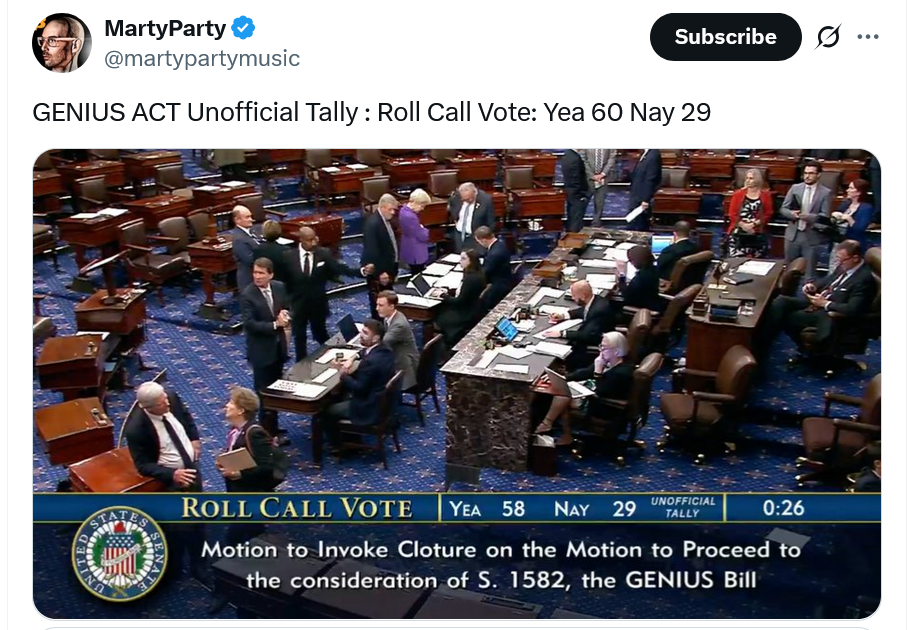
Stablecoin Regulation Takes a Step Forward
The US Senate has moved a significant step closer to regulating the burgeoning stablecoin market. After a period of uncertainty, the Senate voted to advance the Guiding and Establishing National Innovation for US Stablecoins Act (GENIUS Act), a key bill designed to bring greater oversight to this rapidly evolving sector. This vote represents a major development in the ongoing debate about how to balance innovation in crypto with the need for financial stability and consumer protection.

A Bumpy Road to the Senate Floor
The GENIUS Act, introduced by Senator Bill Hagerty, has faced a tumultuous path. Initially, the bill stalled in the Senate in May, facing opposition from Democratic senators who raised concerns about potential conflicts of interest surrounding President Donald Trump’s crypto ventures and the bill’s anti-money laundering provisions. This deadlock caused a significant delay, raising questions about the bill’s future.
However, the bill was ultimately revised to address these concerns and garnered enough bipartisan support to proceed to a vote. The Senate voted 66-32 to invoke cloture, a procedural step that clears the way for debate on the Senate floor. This development suggests that the bill is gaining momentum and may be on track for a final vote.
Key Provisions of the GENIUS Act
The GENIUS Act aims to address concerns about the risks associated with stablecoins, which are cryptocurrencies pegged to traditional currencies like the US dollar. The bill would require that:
- Stablecoins be fully backed by reserves, ensuring their stability and reducing the risk of collapse.
- Regular security audits be conducted to ensure the integrity of these reserves.
- Stablecoin issuers obtain approval from federal or state regulators, providing an additional layer of oversight.
- Only licensed entities be permitted to issue stablecoins, restricting access to the market and potentially reducing the potential for fraudulent activity.
- Algorithmic stablecoins, which rely on complex algorithms to maintain their peg, be subject to stricter regulations due to their inherent volatility.
Potential Impact on the Crypto Ecosystem
The passage of the GENIUS Act could have a significant impact on the crypto ecosystem. It could:
- Increase confidence in stablecoins, leading to wider adoption and greater use in payments and financial transactions.
- Reduce the risk of systemic instability in the crypto market, by mitigating the potential for large-scale stablecoin collapses.
- Create a more level playing field for stablecoin issuers, encouraging competition and innovation within the market.
However, some argue that the bill could stifle innovation and limit the growth of the stablecoin market. The strict regulations and licensing requirements may make it difficult for new entrants to compete, and the restrictions on algorithmic stablecoins could limit the development of more sophisticated and efficient stablecoin mechanisms.
The Future of Stablecoin Regulation
The GENIUS Act is likely to be subject to further debate and scrutiny as it progresses through the legislative process. The bill’s final form could differ significantly from its current iteration, reflecting compromises and amendments made by lawmakers. It remains to be seen how the final version of the bill will balance the need for regulation with the desire to foster innovation in the crypto space. The outcome of this legislative process will have significant implications for the future of stablecoins and the broader crypto industry.


